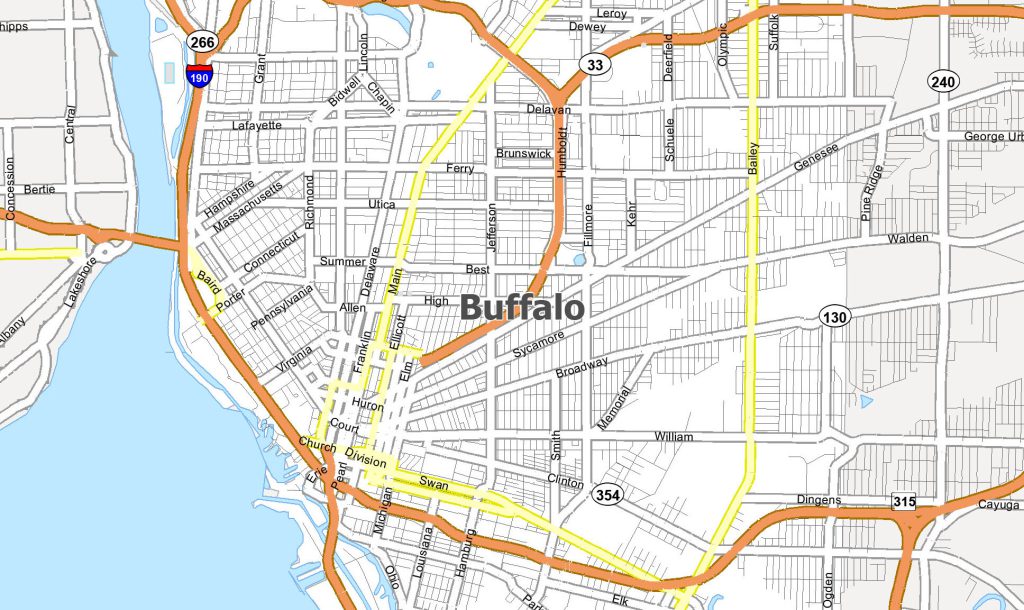In an era dominated by technological advancements, the looming threat of cyber attacks has become an omnipresent concern. As businesses and governments continue to digitize their operations, the vulnerability to malicious cyber activities escalates. To combat this, the Buffalo Pentest initiative emerges as a pivotal strategy in fortifying cyber defenses. In this comprehensive exploration, we delve into the essence of a Buffalo Pentest, its significance, and its implications in safeguarding critical infrastructure.

Buffalo, as a significant economic hub in the United States, contributes substantially to the national Gross Domestic Product (GDP) through its diverse industries and economic activities. Let’s delve into the economic output of Buffalo in numbers:
Economic Output of Buffalo:
- Gross Metropolitan Product (GMP): As of recent data, Buffalo’s Gross Metropolitan Product stands at approximately $59.8 billion. This figure represents the total economic output generated within the Buffalo-Niagara Falls metropolitan area, encompassing various sectors such as manufacturing, healthcare, education, finance, and tourism.
- Key Industries and Contributions:
- Manufacturing: Buffalo has a long-standing history in manufacturing, particularly in sectors such as automotive, aerospace, and machinery. The manufacturing industry contributes significantly to the region’s economic output, providing employment opportunities and driving innovation.
- Healthcare and Education: With renowned institutions like the Buffalo Niagara Medical Campus (BNMC) and the State University of New York at Buffalo (UB), the healthcare and education sectors play a crucial role in Buffalo’s economy. These sectors not only contribute to economic output but also foster research, development, and talent retention in the region.
- Financial Services: Buffalo serves as a financial center within Western New York, with banking institutions, insurance companies, and investment firms playing a pivotal role in the local economy. The financial services sector contributes substantially to Buffalo New York’s economic output and provides essential services to businesses and residents alike.
- Tourism and Hospitality: Buffalo’s cultural attractions, historic landmarks, and natural resources contribute to the tourism and hospitality industry. The region attracts visitors for events like festivals, sports tournaments, and cultural exhibitions, boosting economic activity through spending on accommodations, dining, entertainment, and retail.
- Employment Statistics:
- Buffalo’s labor force is approximately 549,000 strong, with diverse employment opportunities across various sectors.
- The unemployment rate in the Buffalo-Niagara Falls metropolitan area is typically around 5% to 6%, reflecting a relatively stable job market compared to national averages.
- Exports and Trade:
- Buffalo, New York plays a vital role in international trade, particularly through its strategic location along the Great Lakes and proximity to the Canadian border. The region’s exports include manufactured goods, agricultural products, machinery, and transportation equipment, contributing to both local and national economic growth.
- Investment and Development:
- Buffalo has witnessed significant investment and revitalization efforts in recent years, with projects aimed at improving infrastructure, promoting innovation, and enhancing the overall business climate. Initiatives such as the Buffalo Billion and various public-private partnerships have spurred economic development, job creation, and entrepreneurial activity in the region.
In summary, Buffalo New York’s economic output, as measured by its Gross Metropolitan Product (GMP), reflects its importance as a major economic center in the United States. With diverse industries, a skilled workforce, and ongoing investment in infrastructure and innovation, Buffalo continues to make significant contributions to both regional prosperity and the national economy.

Understanding Buffalo Pentest
Buffalo Pentest, often referred to as Buffalo Penetration Testing, embodies a proactive approach to cybersecurity. It entails simulated cyber attacks conducted by ethical hackers to assess the security infrastructure of an organization or system. The primary objective is to identify vulnerabilities, exploit them ethically, and provide actionable insights to enhance resilience against potential threats.
The Importance of Buffalo Pentest
- Identification of Vulnerabilities: Buffalo Pentest enables organizations to identify weaknesses in their security architecture before malicious actors exploit them. By simulating real-world cyber attacks, weaknesses in networks, applications, and systems can be uncovered.
- Risk Mitigation: By proactively identifying vulnerabilities, organizations can mitigate potential risks associated with cyber attacks. Addressing vulnerabilities before they are exploited minimizes the impact of security breaches and prevents sensitive data exposure.
- Compliance Adherence: Many industries are subject to regulatory compliance requirements mandating regular security assessments. Buffalo Pentest ensures compliance with industry standards and regulatory frameworks by conducting comprehensive security evaluations.
- Enhanced Incident Response: Understanding the tactics and techniques employed by attackers through Buffalo Pentest enhances an organization’s incident response capabilities. It enables teams to anticipate and effectively counter cyber threats, minimizing downtime and financial losses.
- Reputation Protection: A security breach can tarnish an organization’s reputation and erode customer trust. Buffalo Pentest helps in safeguarding reputation by demonstrating a commitment to cybersecurity and proactive risk management.
National Security Targets and Potential Consequences of Breach
In the Buffalo New York metro area, several specific national security targets are crucial to consider. Here’s a list of six targets and their potential consequences if breached:
- Buffalo Niagara International Airport (BNIA):
- Consequences: Breaching BNIA’s systems could lead to disruptions in air traffic control, flight schedules, and airport security protocols. The ramifications may include flight delays, cancellations, and compromised passenger safety. Additionally, the airport’s role in regional transportation and its proximity to the Canadian border heighten concerns regarding potential security breaches affecting cross-border travel and trade.

- Consequences: Breaching Buffalo New York City Hall’s network could result in the compromise of sensitive municipal data, including infrastructure plans, emergency response protocols, and law enforcement information. The implications may include disruptions in public services, compromised public safety, and potential threats to critical infrastructure within the city.
- Buffalo Harbor and Waterfront Infrastructure:
- Consequences: Breaching security measures around Buffalo Harbor and waterfront infrastructure could lead to disruptions in maritime transportation, commerce, and regional shipping activities. The ramifications may include economic losses, environmental hazards from potential spills or accidents, and compromised security of port facilities critical to regional trade and transportation.
- Buffalo Niagara Medical Campus (BNMC):
- Consequences: Breaching BNMC’s cybersecurity defenses could result in unauthorized access to sensitive medical data, research findings, and patient records. The implications may include privacy violations, healthcare fraud, and disruptions in medical services provided by institutions within the campus. Furthermore, as a hub for medical innovation and research, a breach could compromise valuable intellectual property and collaborative efforts in the healthcare sector.
- Buffalo Water Treatment Plants:
- Consequences: Breaching Buffalo’s water treatment plants could lead to contamination of the municipal water supply, posing significant health risks to residents and businesses in the area. The ramifications may include widespread illness, public panic, and disruptions in essential services such as drinking water availability, sanitation, and firefighting capabilities.
- Buffalo Grain Elevators and Storage Facilities:
- Consequences: Breaching security measures at Buffalo’s grain elevators and storage facilities could result in disruptions to agricultural supply chains, food distribution networks, and international trade. The implications may include economic losses for farmers, food shortages, and potential impacts on regional and global food prices. Additionally, these facilities’ strategic significance in storing grain reserves for emergency situations underscores the importance of safeguarding them against cyber threats and physical attacks.
Securing these critical infrastructure assets in the Buffalo New York metro area is imperative to ensure the region’s resilience against cyber threats and potential national security risks. Implementing robust cybersecurity measures, conducting regular risk assessments, and fostering collaboration among public and private stakeholders are essential steps in safeguarding these vital targets from malicious actors.
Leave a Reply